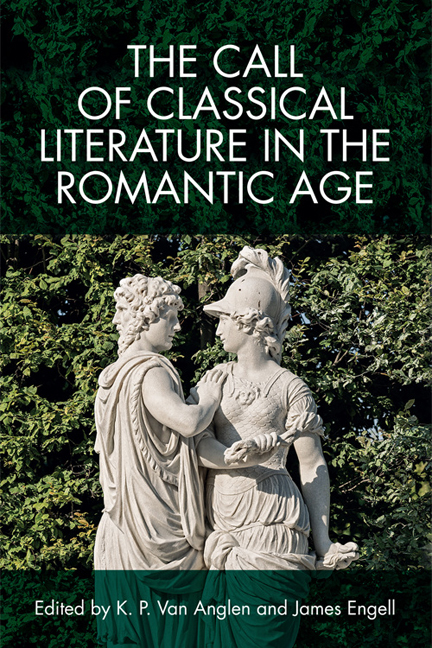4 - “Larger the shadows”: Longfellow’s Translation of Virgil’s Eclogue 1
Published online by Cambridge University Press: 06 May 2021
Summary
On November 29, 1870, Longfellow wrote in his journal: “Everett's Lecture on Virgil. Excellent. Rain in the afternoon.—Evening tried to render the First Eclogue into English hexameters; but did not write it down.” It seems remarkable that Longfellow—an inveterate notetaker and proud owner of a sizable collection of pencils—would not have recorded his effort. Is it possible that he committed his translation— or parts of it—to memory? If he didn't write anything down at the time, he did so later. He included “Virgil's First Eclogue” in Kéramos and Other Poems in 1878, along with another Latin translation, “Ovid in Exile” (from Ovid's Tristia), the two first entries in a whole section of translated poetry which also contained seven sonnets and a canzone by Michelangelo, as well as other translations from less prominent French and German authors. The structure of the new volume echoes that of earlier collections, notably his first book of poetry, Voices of the Night (1839), which featured twentythree translated poems and only seventeen original ones.
Latin was not among the languages represented in Voices of the Night, for obvious reasons. He never tried his hand at blank verse renderings of Homer, as William Cullen Bryant did, and he never sought to reinvigorate, as Thoreau did, his “fallen English” by returning to Pindar's Odes. To be sure, literary translation was part and parcel of Longfellow's poetics, which presented a powerful alternative to the more familiar nationalistic conceptions of U.S. American literature that have for too long dominated our view of the nineteenth-century canon. With a few exceptions (Anglo-Saxon being one of them), Longfellow's advocacy for a “cosmopolitan” American literature—one that made use of all the literary traditions and languages present in a nation of immigrants, while also respecting indigenous traditions—depended on the appreciation of living languages, languages still spoken around him, whether in the fish markets of Boston or by his Ojibwa visitor, Kah-ge-ga-gah-bowh, better known as George Copway. It helped that Longfellow spoke nine languages fluently and was able to read, by a conservative estimate, eight more.
- Type
- Chapter
- Information
- The Call of Classical Literature in the Romantic Age , pp. 103 - 125Publisher: Edinburgh University PressPrint publication year: 2017



